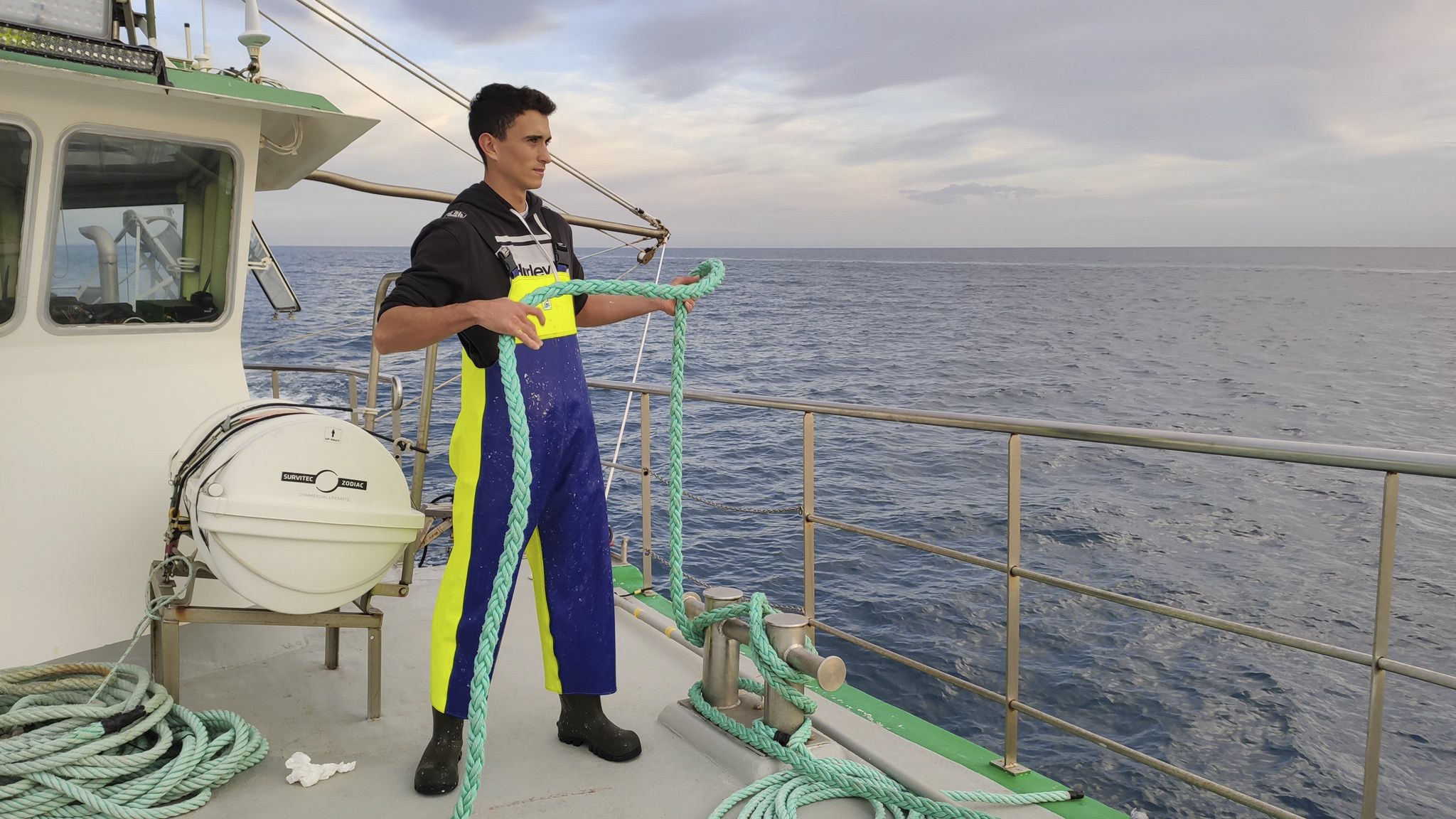The task does not seduce the youth. The data that the Spanish Fisheries Confederation (CEPESCA) will present this Wednesday in its Report on the sector show the lack of generational change within this activity despite the measures that the employers have tried to implement in recent years. Neither the dual professional training courses developed with various entities nor the continuous contact with the training schools have managed to reverse a situation that, in the words of its general secretary, Javier Graat, “will be one of the main challenges that the industry in the coming years.
Rubén Arego (Castellón, 1998) knows this well, who can count his contemporaries on the fingers of one hand in the Alto Grao de Castellón pass. “Look, here you don’t earn like before, the fishing resources and the different fish farms are not 100% healthy, that’s why you don’t earn what you used to earn when the fishing ground was fine. Now the kids prefer to work on land They know that they charge a little less, but they sleep at home. In the port there will be about 300 people and I count the young people on the fingers of one hand,” he argues.
Its history is like few others on the Valencian Mediterranean coast. As far as he knows about his family, he is a sixth-generation patron, although if he begins to ascend through his family tree, this idyll with the sea may “reach much further back,” he maintains. Arego has always been clear about it, he fell in love with the sea when he was still a child and, at only 15 years old, he decided to take a step forward. “Most of my friends have university degrees, here if you don’t have a link like the one I have with fishing, it’s very difficult to start working in my position. At 16 I had it clear and I started training to be able to dedicate myself to it” , Explain.
His story matches the figures. Close to 65% of the employees in the sector are very close to their retirement age and young people do not make it. The requirements for personnel in this age group are “very high”, acknowledges Arego, however, the working conditions mean that many of them opt for other jobs far from the sea. “In this sector there is no fixed salary, the more you fish, the more money you earn. We are having to cover the lack of young people with foreign labor. If the immigrants were not there, 80% of the boats would stay on land” . They are 12-hour days and many times you end up thinking that it is not worth it », he confesses. On the ship commanded by the young skipper, the average age is around 52 years.
Regarding the difficulties that, as a young person, he has to face today, Arego highlights the effect that inflation has had on fuel and, therefore, on his variable expense sheet. In his case, with two boats of 25 meters in length, he makes use of 4,000 or 5,000 liters weekly in each of his boats. Bearing it is not easy. “The price has tripled or even quadrupled. Luckily, we don’t practice trawling, which costs a lot more. It’s difficult to deal with this situation right now,” he says. The sector has mobilized together with the different agricultural employers in several tractors to demand measures that help alleviate this situation.
However, inflation is not the only handicap to be faced. In this sense, Rubén Arego regrets the “significant loss of prestige” that his sector has to face today from society. This situation causes many young people not to accept jobs in the industry due to the social stigma that surrounds them. “At first, when you meet someone and tell them that you are a fisherman, they are impressed in a good way. The problem is that over time their opinion changes and, in the end, most always say that we are here because we have no other choice. I think it is very unfair, really, there are very few people who are willing to do this work and our effort is not valued as it should,” he says.
Conforms to The Trust Project criteria
















